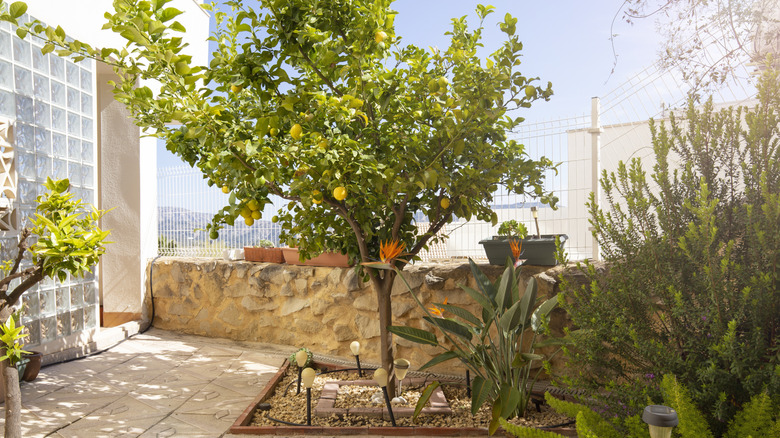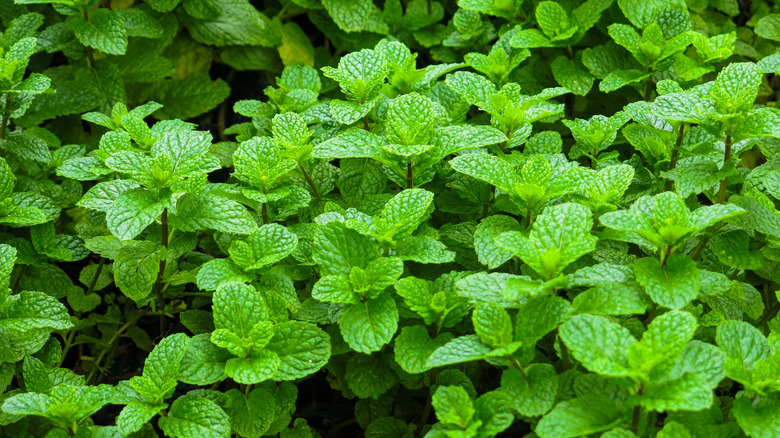The Herbs That Might Be Slowly Hurting Your Lemon Tree And Its Harvest
There are plenty of herbs and flowers you should grow alongside citrus trees in the garden, such as marigolds, oregano, and sage. These provide numerous benefits to your trees and ensure they thrive and reward you with a bountiful harvest. At the same time, there are also specific herbs you should never consider growing near your lemon tree because, quite frankly, they can slowly hurt your fruit tree and reduce the abundance of juicy fruits it might otherwise produce. Two herbs that you want to avoid planting anywhere near your lemon tree are fennel and mint, and there are very good reasons for this.
Fennel (Foeniculum vulgare) is allelopathic, which means that it releases toxic chemical compounds into the soil. These can be absorbed by the roots of your lemon tree and will stunt its growth, resulting in lower fruit production. In severe cases, these compounds can even kill plants that absorb them. That's precisely why fennel is not a good companion plant for your citrus trees or any other edible plants growing in your garden, even though it can attract beneficial insects such as parasitic wasps, hoverflies, and ladybirds. Herbs with similar insect attracting properties include dill and cilantro, which can be planted near your lemon tree, so that you can attract the good bugs that'll chase pests from your garden. Other more uncommon herbs with allelopathic properties include garlic mustard (Alliaria petiolata) and goldenrod (Solidago spp.), so these should also be avoided.
Why mint is not a good companion for your lemon tree
While mint is a very popular garden herb, there are good reasons why the majority of gardeners worldwide prefer to grow this aromatic plant in containers rather than in the yard. You see, mint is a prolific grower and it can easily spread and take over entire garden areas very quickly, making it quite invasive. Similarly, once planted, it's really difficult to remove from the yard. It spreads through underground rhizomes, and even if you remove the herb, any underground sections that remain can easily resprout and you'll have new plants coming up.
The problem with growing this around your lemon tree is that its aggressive growth will outcompete with your tree for water and nutrients in the soil. Plus, if it grows too close to the trunk, it may cover the graft union and this could initiate sucker growth that you might not notice. Any suckers that grow are from the rootstock and will often be inferior to the grafted species, which could result in less fruit. Allowing suckers to grow also takes energy away from the desirable growth, once again, resulting in fewer fruits. Essentially, if you do want to grow mint near your lemon tree, plant it in a pot to contain the rhizomes and stop them from spreading. Finally, apart from incompatible companion planting, there might be other reasons why that lemon tree is struggling in your garden, that you'll want to explore.

